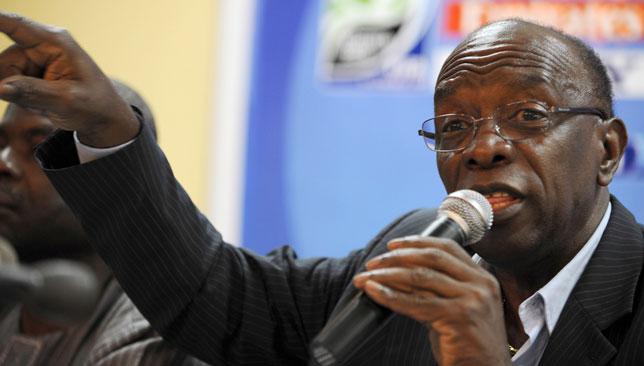
Disgraced former FIFA vice president Jack Warner pocketed a $10 million (Dhs36.7m) payment made by South Africa through football’s world body, the BBC reported Sunday.
– UCL: Twitter reacts to Barcelona’s win over Juventus
– Omar Yabroudi: Emirati celebrates dream job with Forest
– REPORT: Barcelona clinch treble by downing Juve 3-1
– AGL: Brett Holman leaves Al Nasr for Emirates Club
Citing papers it has seen, the BBC said the 72-year-old Trinidadian laundered money through a supermarket chain, made cash withdrawals, paid off his credit cards and took personal loans from the sum.
US investigators suspect the $10 million was a bribe intended to secure votes so that South Africa hosted the 2010 World Cup.
South Africa says the money, paid in 2008, was intended to pay for football development for the African diaspora in the Caribbean, where Warner was the longtime football baron.
Warner has also denied any corruption. In three transactions — on January 4, February 1 and March 10 2008 — funds totalling $10 million were moved from FIFA’s bank into an account of Confederation of North, Central American and Caribbean Association Football (CONCACAF) which was controlled by Warner, then its’ president.
The BBC said JTA Supermarkets, a large chain in Trinidad, received $4.86 million (Dhs17.85m). The money was paid in instalments from January 2008 to March 2009 and the largest payment was $1,350,000 (Dhs4.96m) paid in February 2008. US prosecutors say the money was mostly paid back to Mr Warner in local currency.
The documents also show $360,000 (Dhs1.3m) of the FIFA money was withdrawn by people connected to Mr Warner. Nearly $1.6 million was used to pay Warner’s credit cards and personal loans.
If Jack Warner’s #FIFA expenses were this clearly itemised, isn’t he off the hook? pic.twitter.com/YK2j7E3DQr
— Jeremy Vine (@theJeremyVine) June 7, 2015
The documents show the largest personal loan Mr Warner provided for himself was $410,000 (Dhs1.5m). The largest credit card payment was $87,000 (Dhs319,000).
Brent Sancho, Trinidad’s Sports Minister and a former international footballer, was appalled by the revelations.
“He [Mr Warner] must face justice, he must answer all of these questions. Justice has to be served,” he told the BBC.
“He will have to account, with this investigation, he will have to answer for his actions,” added Sancho, who played in all three of Trinidad’s matches at the 2006 World Cup finals.
“I’m devastated because a lot of that money should have been back in football, back in the development of children playing the sport. It is a travesty. Mr Warner should answer the questions.”
Warner has proclaimed his innocence since being arrested on May 29 at the request of US authorities who have sought charges against 14 top football officials and sports marketing executives.
Jack the bad! https://t.co/FITDvgcuqA
— Gary Lineker (@GaryLineker) June 7, 2015
The former Trinidadian security minister is currently free on bail of $400,000 (Dhs1.47m) bail pending a decision in his extradition case.
Warner — still a powerful member of parliament in Trinidad and Tobago — has taken out paid advertisements in the Trinidadian media, published articles in local newspapers and held rallies with his Independent Liberal Party to defend himself.
The South African payment is a central part of a US case that FIFA officials took bribes totalling $150 million (Dhs550.9m) over two decades.
The US indictment alleged that bundles of cash in a briefcase were handed over at a Paris hotel as a bribe by a “high-ranking South African bid committee official”.
South Africa has strongly denied that it paid bribes to secure the 2010 World Cup — the first hosted in Africa and a key plank of Sepp Blatter’s pledges when he took over as FIFA president in 1998.
“We as a government and people managing the resources of the South African people — we did not share part of your resources with criminals, I am saying it now and forever,” South African sports minister Fikile Mbalula said at a hastily-organised press conference on May 28.
“The South African government and its people will not stand in any way of pursuing justice, criminality (and) fighting corruption in sport.”